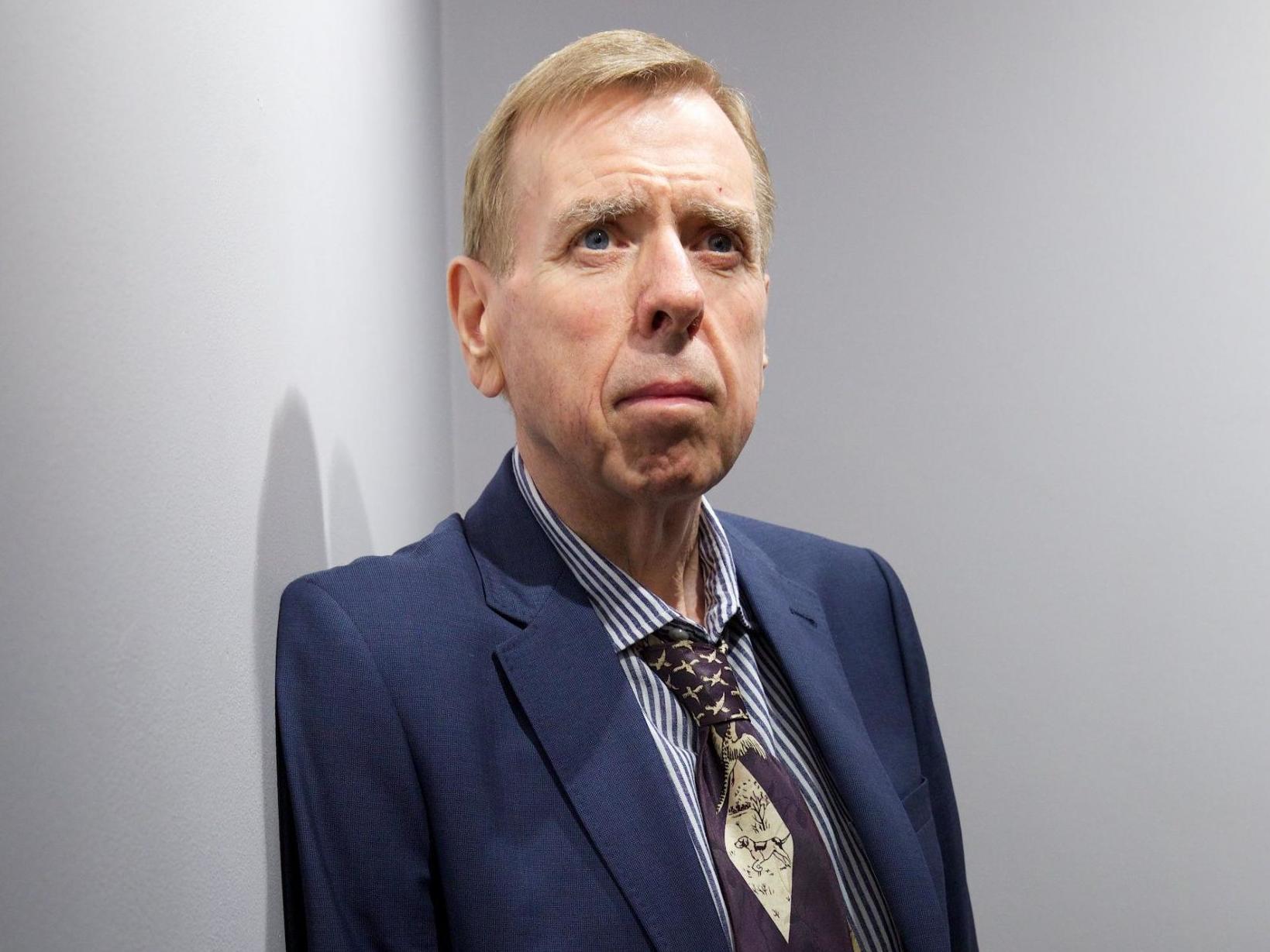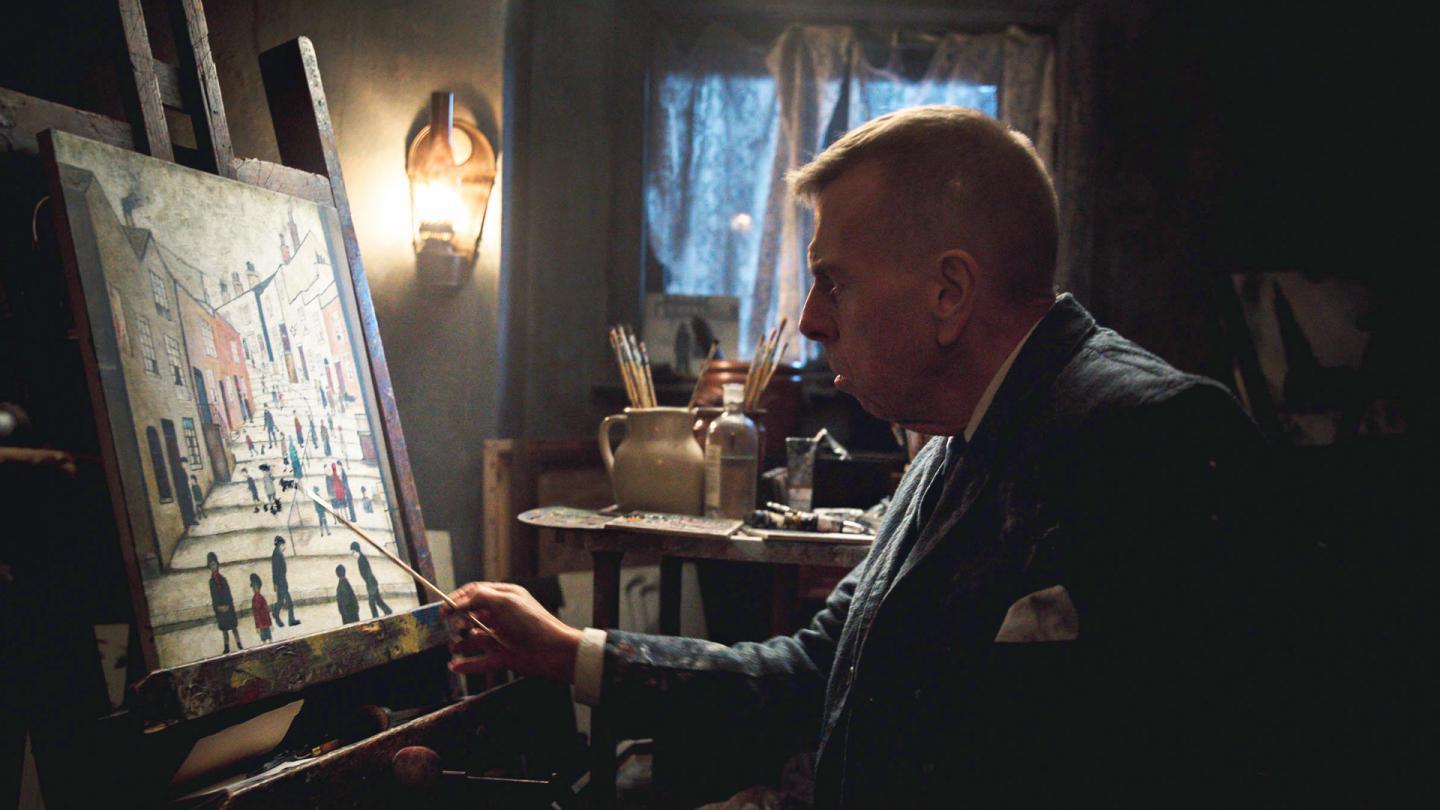Timothy Spall interview: ‘Losing weight can shut doors’
After playing JMW Turner, the actor takes on LS Lowry in ‘Mrs Lowry & Son’. He talks to Adam White about the difference between the US and UK film industry, how ‘we’re obsessed with physical appearance’ and why he refuses to look at Twitter


A few years ago, Timothy Spall decided to lose weight, career prospects be damned. “I knew it was risky because it can shut doors,” he says, “but I knew that if I was lucky it would also liberate me. I don’t know whether I’ve missed out on [parts], but only because nobody’s ever called me up and said, ‘Ahh, we were gonna use you when you were fat but now we can’t’.”
The decision to transform his body arrived at the same time Spall, that most consummate of British supporting actors, realised he had grown tired of existing on the fringes of other people’s movies, popping in here and there to make an impression. So with his new, slimmed-down physique and riding on the awards success of his remarkable starring role in Mike Leigh’s Mr Turner, he pledged to turn down work that wasn’t “irresistible” to him.
“Something just clicked in my head that said: I don’t know how long I’ve got left, but now is the time that I want to be at the centre of things,” he explains. “I wanted to see if I could, and it seems to be that people are letting me have a crack at it, and I like it. I don’t know if it will go on forever, but the parts are coming my way.”
Mrs Lowry & Son is the latest British film that could be described as “a Timothy Spall vehicle” – a descriptor Spall believed unthinkable as little as a decade ago. Following his turn as JMW Turner, it is his second time playing one of Britain’s greatest artists, but the most recent in a run of starring roles for the actor – in 2016 he won plaudits in a revival of Harold Pinter’s The Caretaker, an Old Vic production that marked Spall’s first theatrical work in more than two decades, and earlier this year was the star of ITV’s Hatton Garden.
He plays the artist LS Lowry, who painted stylised depictions of industrial estates and local communities in mid-20th century northwest England, but whose ambition was repeatedly stymied by his domineering mother Elizabeth (Vanessa Redgrave). The film’s title is intended to be ironic, for this is undoubtedly Spall’s show. His Lowry is tender, stoic and vulnerable, but possessing a fiery strength when prodded. The latter is closer in spirit to the real Spall, who is mischievous, open and quick to a dry joke, with a relaxed, seen-it-all-before perspective on life and the industry.
Spall had a very different upbringing to the belittled and ultimately trapped Lowry. Spall’s artistic aspirations, however unusual they were for a working-class boy at the time, were met with parental support rather than the bafflement that greeted Lowry’s. “It was completely contrary to him,” he explains. “My mum especially encouraged me to pursue [acting]. Once I got into the National Youth Theatre and then into Rada and decided that I wanted to be an actor, she just backed me all the way. I wasn’t in any way hampered, I was encouraged and enabled by my parents. But I was very fortunate to have that.”
Something just clicked in my head that said: I don’t know how long I’ve got left, but now is the time that I want to be at the centre of things
Spall’s youthful aspirations were inspired by the successes of his idols at the time, working-class actors like Anthony Hopkins, Tom Courtenay and Albert Finney. And he found much of his early success in the works of Mike Leigh, who cast him in seminal dramas such as Life Is Sweet and Secrets and Lies. But Spall’s journey, and the kinds of films that propelled him to fame, have become rarer in the decades since. You can’t help but wonder, would a young Timothy Spall be able to break through in 2019?
“There’s a bloke called Rafe Spall that’s doing all right,” he jokes, referencing his very talented son, who has impressed on film, stage and the small screen, memorably in Patrick Marber’s new version of Hedda Gabler in 2016 and Hugo Blick’s The Shadow Line in 2011. “But I think that we go through phases and then there’s a backlash. Art is an ever-moving thing and if it’s gotta be there, it will find its way out. But also society’s changed, and generations have changed. The Mike Leighs and Ken Loaches came out of an old order, and a period where the working classes, for the first time in a long time, if ever, were getting their voices [out there]. That will appear again. These things are cyclical. I might be hopelessly optimistic, but I hope it does happen.”

Spall has been an important part of the trajectory of British acting for nearly four decades, and knows better than most how things can rapidly shift. He was there when English repertory theatre was still a thriving industry, a major presence in the explosion of working-class British comedy/drama in the Eighties, exemplified by Quadrophenia and Auf Wiedersehen, Pet, and a recognisable figure in the British cinema boom of the Nineties, when films like Still Crazy and Topsy-Turvy were as successful at the box office as they were in awards circles. And, through the Noughties, Spall was one of the most high-profile British character actors to make the leap to America. Looked at today, Spall’s US credits are intriguing – there was the Mark Wahlberg/Jennifer Aniston music industry comedy Rock Star, where he played a roadie, his turn as the snivelling minion to a Disney prince in the Amy Adams musical Enchanted, and the time he offered legal advice to Tom Cruise in Vanilla Sky. All were slightly subservient roles, mirrored even in the UK on occasion (most notably as the feeble underling of Lord Voldemort in the Harry Potter franchise), but still, he admits, thrilling.
“I always made this conscious decision that I was never going to America until I was asked,” he recalls. “I never did the ‘hanging around the pool’ thing. I also had a young family, so I was getting on with that, bringing up my kids with my wife. But then one day, post-Secrets and Lies, it came along and then I went off. And I started working over there and I was delighted by it. It was all much bigger and longer, and you realise that it’s all backed up by huge organisations that have a whole plan of how the film is gonna be disseminated and be publicised and so on and so forth. [Compared with] here, where you just go, ‘My god, we’re making a blimmin’ movie! How did this happen?’”
Spall hasn’t spent much time working in the US this decade, however, instead returning to his British indie film roots and becoming a regular presence in Brits-of-a-certain-age projects like Finding Your Feet or The Party, all seemingly spawned in the wake of The Best Exotic Marigold Hotel. But it’s arguable that the Spall of today would feel at home lounging by the pool in Los Angeles, at least based on his new physique.

He wasn’t always overweight – fans of Auf Wiedersehen, Pet will remember a much slimmer Spall in the show’s early years – but years of booze and industry parties eventually took their toll, coinciding with much of his most high-profile work (“I’ve been different sizes but, the thing is, I did a lot of stuff when I was a bigger fella,” he says). There was also his diagnosis, in 1996, of acute myeloid leukaemia, which nearly killed him. But even that didn’t entirely make him more conscious of his health moving forward. It wasn’t until 2014, while preparing for his role in the Sky chiller The Enfield Haunting, that Spall decided to shed the pounds. He’s maintained his new shape by cutting out sugar and alcohol, and seems to have escaped that ubiquitous weight-loss curse, his face not suddenly ravaged with age but rather smooth and refined. But it’s also meant a lot of questions. To go from a man only ever asked about character and process to someone asked about his physical appearance must be a strange departure for him, surely?
“It’s mildly tedious,” he counters. “But I’m not surprised because we’re obsessed with it, and I suppose people speculate on whether you’ve got some terrible disease or something. I don’t look at Twitter and all that, but I’m sure they’ve said all sorts of horrible things – ‘Ooh god, he looked much better when he was fat’, I bet it all goes on.”

He blames such a reaction most of all on the shock of the new, and audiences being used to seeing Spall at his roundest. “I’m in my ‘thin Louis Armstrong’ period,” he explains. “Louis Armstrong went through a whole period of being this big, big guy, and then all of a sudden he lost a load of weight and people said, ‘Oh god, is he ill?’ But then for the last 20 years of his life, he was thin and nobody cared. I think there’s a transition period.”
While we get used to it, Spall is planning on returning to his art. Amid his research into JMW Turner, Spall took up painting, reigniting a talent he hadn’t seriously explored since his teens. By the time he was playing Lowry, painting had turned into “a compulsion” for him, he says. A number of his landscapes and watercolours are currently hanging in Manchester’s The Lowry, the world’s largest collection of the painter’s work.
“I need to get back to it because I know that as much as I find it frustrating and not particularly enjoyable, once I finish I realise it’s been something that’s been laying in me for a long time,” he explains. “Whether they’re any good or not... it’s not for me to decide.”
Mrs Lowry & Son is in cinemas now
Join our commenting forum
Join thought-provoking conversations, follow other Independent readers and see their replies
Comments
Bookmark popover
Removed from bookmarks